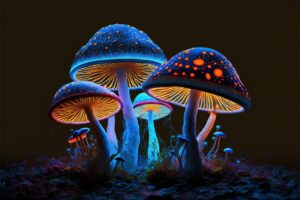
Depression is a mental disorder that is very prevalent worldwide. A 2021 World Health Organization report estimated that about 280 million people globally have some form of depression and predicted that as the COVID-19 pandemic progressed, this number would only increase. There are many different factors, both internal and external, that can lead to the development of depression, and the effects of this illness can cause issues with mood, concentration, motivation, and even physical health. Over time, many different therapeutic approaches have been developed to try and treat the various symptoms of depression, including different therapies, antidepressant medications, and combinations of the two. Unfortunately, even with the variety of treatments and therapies available, 100 million people worldwide suffer from treatment-resistant depression (King’s College, London). Nobody has completely figured out the mechanisms of depression. As a result, there is no “perfect” treatment or cure for the illness, and more work needs to be done when it comes to treating it.
Recently, more focus has been placed on the development of less traditional, alternative methods of treatment for depression, and one approach that is beginning to show promise is the use of psilocybin, the active compound found in “magic mushrooms,” in conjunction with more mindfulness-focused methods of cognitive-behavioral therapy. While often seen as a taboo psychedelic drug, research looking at the use of magic mushrooms has shown that with controlled doses, they can be used to decrease symptoms of depression and anxiety in people with different types of treatment-resistant depression for extended periods of time. Additionally, some early work is beginning to show that psilocybin mushrooms can potentially be used to treat other disorders, like obsessive compulsive disorder and alcohol use disorder. While little is understood about what makes psilocybin work as a treatment for depression, the recent increase in its study can be viewed as part of a greater “turning point” in the study of psychedelics as a whole. In the early to mid-twentieth century, researchers in psychology and psychiatry were studying the use of psychedelics, including magic mushrooms, in order to develop better understandings of brain function and potential avenues for therapeutic intervention. By the sixties and seventies, the increasing use of psychedelics outside of medical research caused a lot of this research to fade out and be seen as taboo. With recent, promising research coming out and all of the new technology and techniques being developed in the field, it is starting to look like scientific interest in psychedelics is making a comeback.
Psilocybin is currently being clinically tested for use in treatment-resistant depression, and results from recent trials have been showing great progress in the development of the compound as a therapeutic tool. In one trial conducted by the COMPASS Pathways mental health care company, it was shown that a single 25mg dose of psilocybin, alongside therapy and psychological support reduced depression scores for patients with treatment-resistant depression across a span of 3 weeks. In another recent study conducted at Johns Hopkins, two doses of psilocybin alongside therapy ended up producing strong antidepressant effects that persisted for up to a year in some patients. While more work still needs to be done optimizing doses and learning more about how psilocybin works as an antidepressant, results like these are beginning to paint a really promising picture of what could potentially be the future of treatment for depression, and these results also give more support to the idea of studying psychedelics as far more than just taboo drugs with potential for abuse.
Peer Editor: Quinn Eberhard